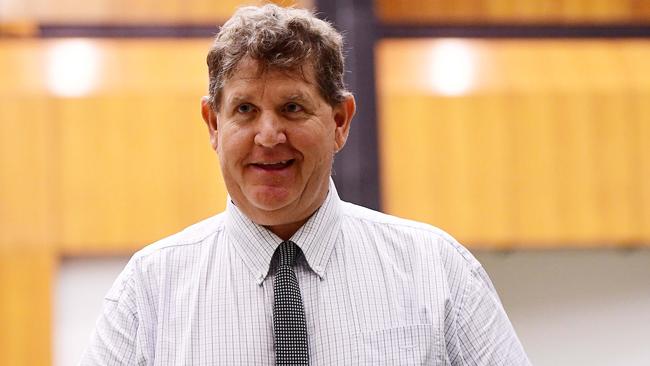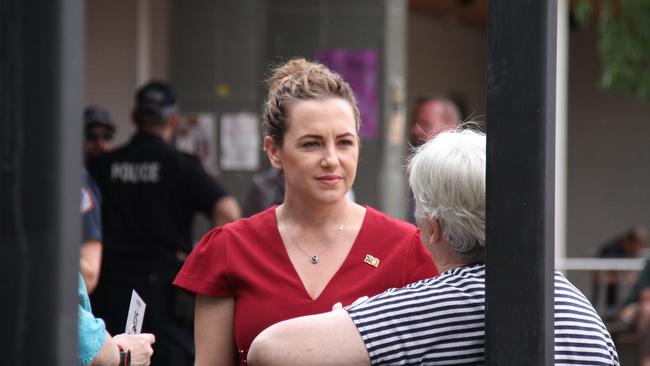Cunningham: Dishing out of free money in the NT needs to stop
It’s the problem no-one seems to want to know about. The thing that holds back the Territory, further entrenches disadvantage and increases alcohol abuse. It’s the curse of sit-down money, writes Matt Cunningham.

News
Don't miss out on the headlines from News. Followed categories will be added to My News.
It’s the problem that no-one seems to want to know about.
The thing that holds back the Territory, further entrenches disadvantage, increases alcohol abuse and some of its devastating associated harms and deprives children of the future they deserve.
It’s the curse of sit-down money.
Its impact is well documented but that never prompts the action so many know is required.
Consider the thoughtful piece written in this publication two years ago by former Darwin lawyer Dominic McCormack, who grew up in Wadeye.
“Rather than gain employment, many simply exist for their next royalty payment,” he said.
“I have watched people running down streets chasing Land Council troop carriers so they do not miss the royalty meeting. This has become an all-consuming ritual of remote life, creating a culture of irresponsibility and reliance on others.

“Once paid, it is the second-hand car dealers, the bottle shops, the pokies and the drug dealers that gain most from these distributions. This should come as no surprise. People struggling in low socio-economic conditions are rarely able to use significant funds to generate a long-term future; rather, they enable satisfaction of immediate wants.”
As McCormack noted, this “shade money” mentality removes from its recipients the notion that income requires activity – ie work – and “education is required to secure employment or develop enterprise”.
Consider as well, the carnage predicted by former Labor MLA Scott McConnell when the Morrison Government doubled dole payments and allowed early access to superannuation during the Covid pandemic.
“Although a lot of people will do the right thing with the payments and spend them on food or clothing or other things, we do need to acknowledge that in the Northern Territory we do have an issue with these types of stimulus payments being turned into alcohol and other damaging drugs,” Mr McConnell said in March 2020.
“I am very concerned that a number of people could be interested in coming to urban centres to engage in activities that are not good for their health or welfare.”
McConnell didn’t need to be Nostradamus to be proven 100 per cent correct.
But did anyone listen? Of course not.
The payments continued unabated and coincided with massive increases in gambling, child neglect, alcohol-related harm and domestic violence.

The trend that began then has been almost impossible to reverse.
Or consider the comments of Justice Jenny Blokland when sentencing Jessie Wilson for the bashing death of his former partner Marcia Jones at the Nightcliff foreshore in 2016.
Wilson had been on a days-long drinking binge after receiving a royalty payment, prompting Blokland to question why such payments were being handed out with no strings attached.
“It seems a tragedy that royalty payments were used for a binge-drinking session in Darwin, and then this terrible event occurred,” she said.

A tragedy, no doubt, but one that prompted no change.
But perhaps there is finally some impetus for change.
Chief Minister Lia Finocchiaro has raised the reform of royalty payments as one of seven key issues she wants addressed by the Commonwealth.
“What we know is that when huge amounts of money flush into towns like Alice Springs we see a corresponding escalation in violence, alcohol consumption and anti-social behaviour,” she said this week.
“So it’s not rocket science to recognise that the distribution of royalties is something that needs to be looked at to benefit everyone, including the people receiving those royalties in the first place. We want to see that money being spend on better outcomes for them, not being spent in town for the wrong reasons.”
A good place to start would be with McCormack’s suggestion that instead of making individual royalty payments, the payments are instead made to a clan group’s corporate entity, with a focus on developing education, training, business and investment opportunities. But the handing out of money for no work or effort needs to end.
Nothing good has come of it.
Originally published as Cunningham: Dishing out of free money in the NT needs to stop



